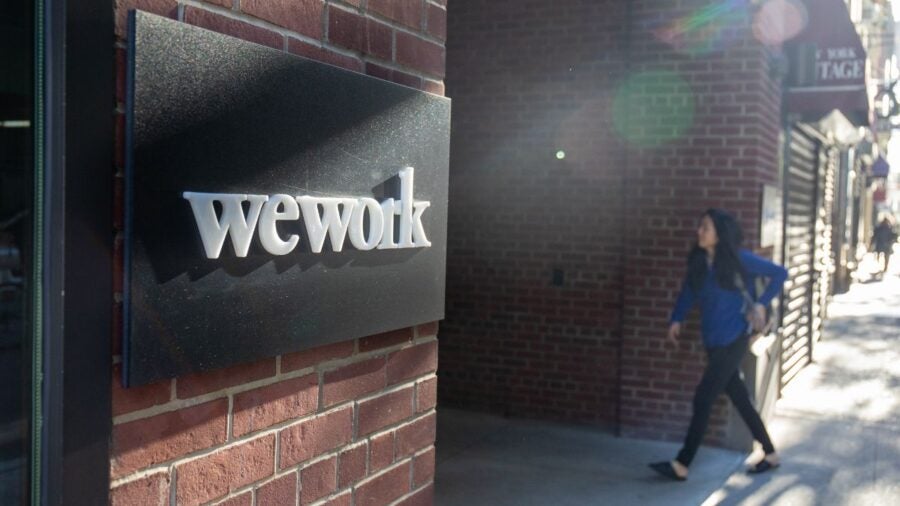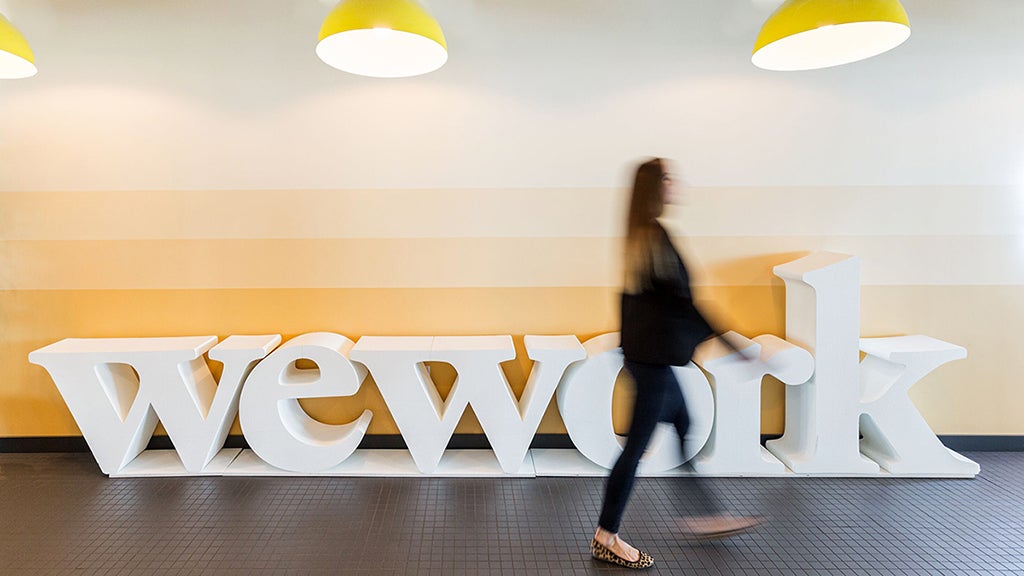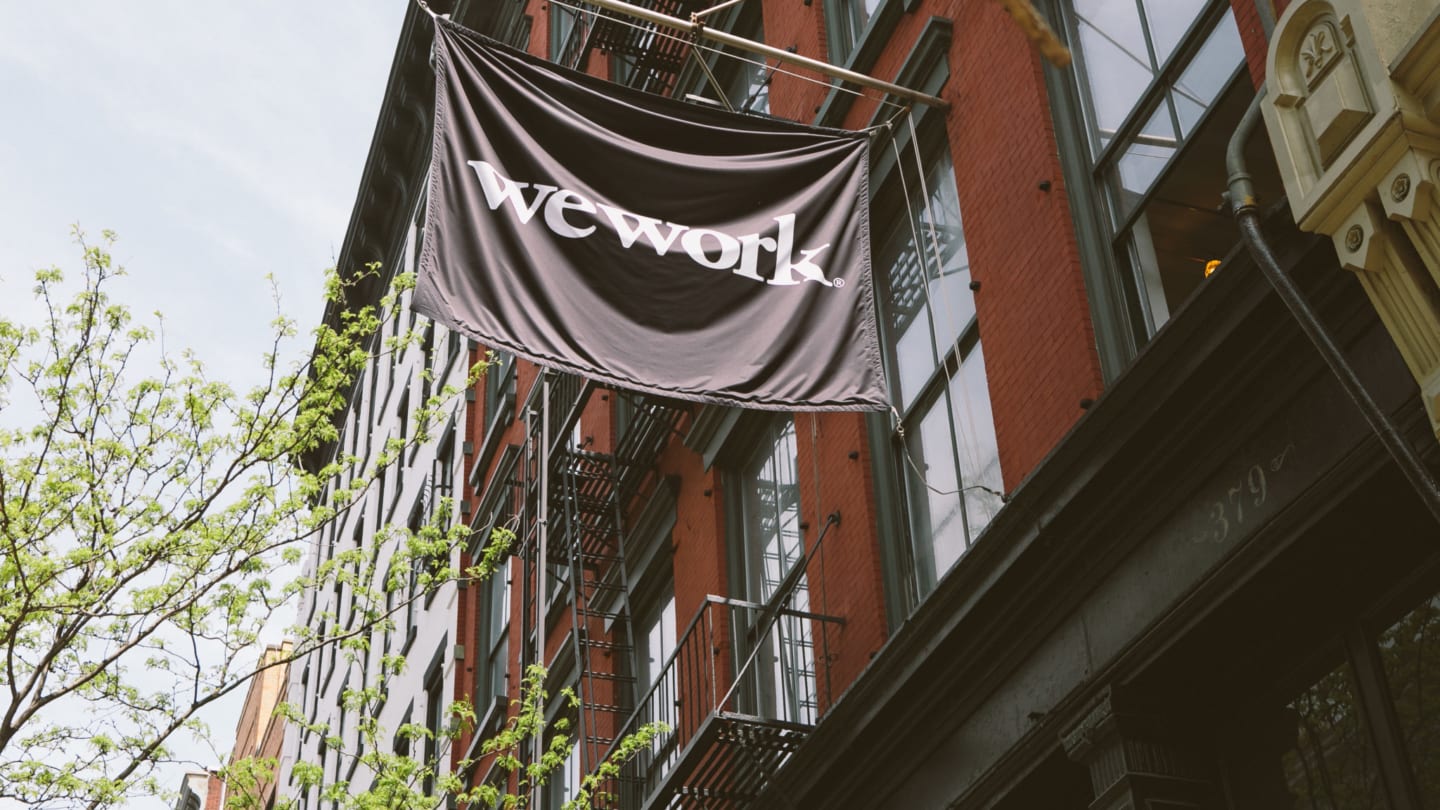
The stage appeared to be set for the revival of WeWork. The remote work revolution has seen large corporations cut their expensive office leases, while flexible working has become the preferred option for most employees. But the troubles at the beleaguered co-working space company ran too deep and on Tuesday (7 November, 2023) the company filed for bankruptcy.
Founded by Adam Neumann and Miguel McKelvey in 2010, the pair sought to reinvent the shared office space market. Rather than merely offering cheap desk space, they attempted to sell a lifestyle where like-minded creatives, entrepreneurs and freelancers could work and socialise alongside each other – something that Neumann likened to a “physical social network”.
In practice, this meant free beer on tap, baristas in every building and weekly taco parties – in Neumann’s mind, at least, this was what “the future of work” should look like.
The plan proved hugely successful. By 2014, WeWork was the fastest growing lessee of office space in New York and, as CEO, Neumann proved adept at persuading venture capital firms to pour money into the project, often employing the language of tech startups to win over investors.
The rise and fall of WeWork
WeWork’s business value ($bn)
Private valuations
Market capitalisation
50
($bn)
40
30
20
10
0
10
14
20
22
23
11
12
13
15
16
17
18
19
21
Private valuations
Market capitalisation
50
($bn)
40
30
20
10
0
10
14
20
22
23
11
12
13
15
16
17
18
19
21
Private valuations
Market capitalisation
50
($bn)
40
30
20
10
0
2010
2014
2020
2022
2023
2011
2012
2013
2015
2016
2017
2018
2019
2021
Private valuations
Market capitalisation
50
($bn)
40
30
20
10
0
2010
2014
2020
2022
2023
2011
2012
2013
2015
2016
2017
2018
2019
2021

2010
WeWork is founded by Adam Neumann and Miguel McKelvey. Its first offices are opened in the SoHo district of New York

2014
The company goes international after opening its first location outside the US, in London

2016
WeWork continues its expansion, opening its 100th office in Berlin. Total membership reaches 80,000

Jan 2019
WeWork is valued at $47bn following a SoftBank-led funding round. The company has 425 locations and almost 600,000 members

Sep 2019
Plans for an IPO are withdrawn amid investor concerns about WeWork’s lofty valuation and poor corporate governance. Adam Neumann resigns as CEO

2020
WeWork looks to reduce costs by phasing out free beer taps and cutting staff

Oct 2021
An agreement is reached to take WeWork public through a special-purpose acquisition company. It makes its stock market debut at a value of $9bn

Aug 2022
WeWork’s occupancy rates return to pre-pandemic levels as people return to offices

Aug 2023
The company raises “substantial doubt” about its ability to continue operating as its losses continue to mount

Nov 2023
WeWork files for Chapter 11 bankruptcy
As the company grew, so seemingly did the ego of its CEO. WeWork reached a peak in 2019 when, after raising $2bn (£1.6bn) from SoftBank, the company was valued at $47bn. In the eyes of its CEO, the business now had the potential to disrupt “how we live, how we work and how we grow” as it underwent a name change to The We Company. In a comical pitch to investors, he stated the company’s new mission was “to elevate the world’s consciousness”.
But none of these lofty ambitions had much substance behind them. Documents released in the build-up to the company’s proposed initial public offering in 2019 showed the true extent of the business’s losses. They also revealed the lengthy and expensive lease agreements that the company was now tied up in, with $47bn owed to landlords over the next 15 years.
Questions over WeWork’s business model and the antics of its CEO (many of which are documented in the Apple TV series WeCrashed) spooked investors, causing its IPO to be shelved and valuation to tumble.
Despite ousting Neumann and going public through a SPAC merger in 2021, WeWork never truly recovered from this scrutiny. After being knocked by the pandemic, its occupancy rates failed to recover and stood at 72% in its most recent quarterly update.
Neumann described the bankruptcy filing as “disappointing” but remained optimistic that WeWork retains the potential to become successful again. “It has been challenging for me to watch from the sidelines since 2019 as WeWork has failed to take advantage of a product that is more relevant today than ever before,” he says. The company currently has 660 locations in 119 cities, according to the company site.
WeWork has long tried to “defy the rules of business”, according to Nick Parminter, CEO and founder of business consultancy Class35. A decade ago, when interest rates were low and venture capital firms were willing to take risky bets on “the next big thing”, it was easier for startups to raise capital without facing the same scrutiny as they would in today’s market.
“In many respects, WeWork is a barometer for how grounded the venture market is,” he says. “Just as their charlatan valuation marked the apex of reality distortion and ridiculousness, their demise marks the growing gravitational pull of business reality in venture-backed companies.”
What does WeWork’s downfall mean for the co-working market?
Despite WeWork’s bankruptcy filing, there is still confidence in the co-working space market. “WeWork has always done things differently, and its difficulties do not reflect the flexible workspace sector as a whole, either here or in the US,” claims Jane Sartin, executive director at the Flexible Space Association, which represents the flexible workspace industry in the UK.
WeWork has long tried to defy the rules of business
In Sartin’s view, many of the issues WeWork faced were unique to the company, rather than reflective of wider problems in the industry. “WeWork’s troubles started well before the pandemic and stem from its early years when billions were poured into it on the basis of it being a ‘tech company’,” she adds. “Other long-established companies, and new entrants, have been growing in a manageable way for the past few years as the interest in flexible workspace has grown, and look set to continue on this path.”
This is perhaps the ultimate irony of WeWork’s demise. Competitor IWG recently posted a 48% surge in half-year profit and the co-working market is expected to grow at a compound annual rate of 17%. “The problem was financing, not product,” says Freddie Fforde, founder of workspace provider Patch. “Even a surface analysis shows their collapse doesn’t reflect the market direction at all.”
The fact that other companies have overcome many of the challenges faced by WeWork shows that poor governance and the business model were deciding factors in sealing its fate.
“The impact of the pandemic and decrease in demand for such workspaces led to mounting debts,” says Tom Davey, co-founder of risk management firm Factor Risk Management. “But these are risks that the office rental market has faced across the board, so WeWork’s management must not be overlooked as a significant contributing factor in its collapse.”
Despite its ultimate failure, WeWork managed to “energise the flexible office workspace market and caught the zeitgeist of a generation of small companies”, Davey adds. These companies will now be looking to succeed where WeWork failed.

The stage appeared to be set for the revival of WeWork. The remote work revolution has seen large corporations cut their expensive office leases, while flexible working has become the preferred option for most employees. But the troubles at the beleaguered co-working space company ran too deep and on Tuesday (7 November, 2023) the company filed for bankruptcy.
Founded by Adam Neumann and Miguel McKelvey in 2010, the pair sought to reinvent the shared office space market. Rather than merely offering cheap desk space, they attempted to sell a lifestyle where like-minded creatives, entrepreneurs and freelancers could work and socialise alongside each other – something that Neumann likened to a “physical social network”.
In practice, this meant free beer on tap, baristas in every building and weekly taco parties – in Neumann’s mind, at least, this was what “the future of work” should look like.



